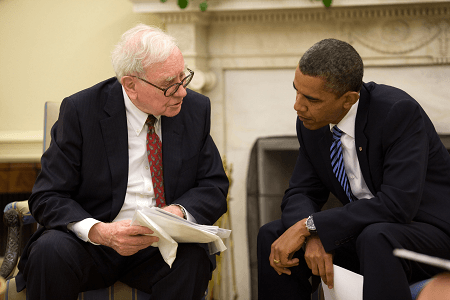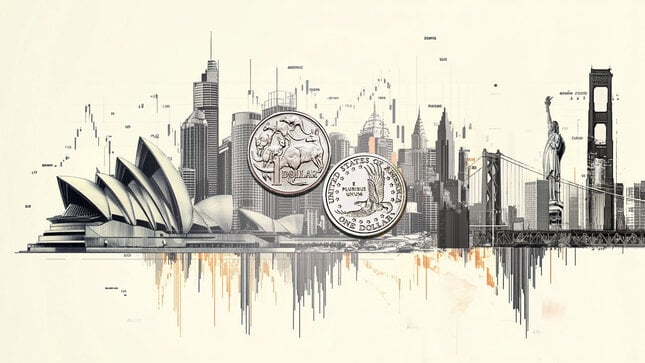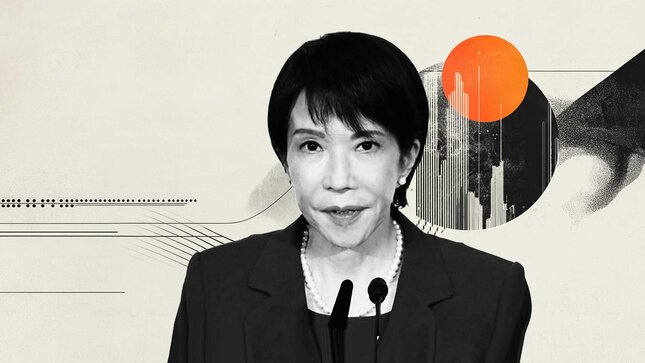Whether you're new to trading or could just do with a refresher, nothing beats studying the greats. And some of those greats have helpfully expressed their wisdom in well-turned, quotable phrases.
For your delectation and education, here are ten of the best.
“You have to be okay with wins and losses. You can't just be looking for the wins and, when the losses happen, you can't buy more and more because you're sure it's going to bounce. We call that revenge trading.” Josh Brolin

Josh Brolin, Wikimedia
Brolin played ruthless top banker Bretton James in Oliver Stone’s 2010 film Wall Street: Money Never Sleeps. In real life, Brolin made part of his estimated $35 million fortune trading, even founding the now defunct stock trading site MarketProbability.com.
His top tip is to refrain from 'revenge trading' – becoming determined to punish the market for a loss, pouring more money into the same trade in a bid to recover, and even turn a profit, rather than just accepting the failure and moving on.
A tempting course of action when counting the holes in your bank account, but it's more likely to amplify the damage than show the haters who's boss.
"Volatility is greatest at turning points, diminishing as a new trend becomes established." George Soros

George Soros, Wikimedia
Possibly the greatest currency trader of all time – plus hedge fund chair, noted philanthropist and a prolific writer and speaker - Soros ensured his place in economic history for his role in ‘Breaking the Bank of England’ in 1992.
As a man who makes his dime from volatility, he is well placed to comment on turning points. The quote is a helpful reminder for less long-sighted traders than Soros that even the most volatile of markets will eventually stabilise.
“The secret to being successful from a trading perspective is to have an indefatigable and an undying and unquenchable thirst for information and knowledge.” Paul Tudor Jones
The Tennessee-born trader and investor was ranked by Forbes as one of the 40 highest earning hedge fund managers in the world in 2013. His no-nonsense approach to trading is grounded in minimising the role of ego.
Jones is famous for testing his ideas before going all out - trying low-value trades until he's either been proved wrong repeatedly or been vindicated in his idea; a more scientific method than many.
He’s also famous for reminding traders and wannabes that they “need to be able to handle getting their butts kicked”.
“It seemed glamorous when I used to go into work and get to be on a trading floor or see how the business worked a little bit before I ever understood what it was.” Erin Duffy
The only woman to make this list, Duffy worked at Merrill Lynch until being laid off in the 2008 financial crisis. She then wrote a well-received novel based on her experiences - Bond Girl.
Coming from a family that was heavily involved in New York’s financial markets, Duffy was able to visit the trading floors as a child, where she became enamoured with the trading environment’s mystique and glamour.
She later learnt that what attracted her to the job in the first place was really a disguise for the reality of high stress and long hours.
"The game taught me the game. And it didn’t spare me rod while teaching." Jesse Livermore
Livermore rose from farm boy to multi-millionaire during the early twentieth-century, gaining and losing several fortunes along the way. Known as “The Bear of Wall Street”, he started trading in illegitimate “bucket shops”, before moving to New York.
One of his central trading philosophies was that an individual’s returns depend on how much they're willing to study the markets and economics. If you put the work in, you can rely on your own judgement, rather than follow others' advice.
"Win or lose, everybody gets what they want out of the market. Some people seem to like to lose, so they win by losing money." Ed Seykota
The psychological aspect of trading is well documented, and the possibility to make or lose large sums of money can amplify timeless human weaknesses like fear, greed and impatience. Seykota expresses this in signature blunt, straight-forward style.
Self-taught, Seykota's no-nonsense strategies have developed over four decades of solitary trading, vindicated by his status as one of the world's foremost traders.
Despite preferring to work alone, Seykota has mentored other heavyweight traders, including Michael Marcus and David Druz. Druz has praised Seykota for being willing to point out the personality weaknesses of his protégées with a view to improving their trading.
“We’re not going to play a winning hand every day.” John Paulson
Paulson made the bulk of his fortune shorting the mortgage market before the 2008 crisis, when most thought it couldn’t fail. He's also the recipient of possibly the largest ever annual pay-out on Wall Street: $4.9 billion.
Paulson’s grounded attitude to winning and losing will have served him well in maintaining a stoic attitude to the fluctuating fortunes of his own hedge fund. After outstanding performance during the financial crisis, Paulson & Co profits fell during 2011/12, before recovering in the last financial year.
"A great trader is like a great athlete. You have to have natural skills, but you have to train yourself how to use them." Marty Schwartz
Schwartz is unusual in that he made his fortune as an independent trader, after he became frustrated with what he felt to be a dead-end job working as a financial analyst.
He says that a willingness to learn which trading style suits you, and adapt your trading in line, is one of the most important skills traders can learn. The lesson didn't come easily. It took ten years of trading for Schwartz to become successful, and he has spoken honestly about the difficulty of taking large losses in his early years.
“To be a good trader, you need to trade with your eyes open, recognize real trends and turns, and not waste time or energy on regrets and wishful thinking.” Alexander Elder
Elder’s first career was as a psychiatrist, and as well as becoming a very successful trader, he is also recognised as one of the world’s foremost experts on trading psychology. An internationally bestselling author, with multiple books on trading, unsurprisingly Elder's trading advice focuses strongly on achieving a thorough psychological understanding of how markets work.
He even compares losing during trading to alcoholism and other addictive behaviours, and says that it can be overcome using similar methods to addiction therapies.
“You don't need to be a rocket scientist. Investing is not a game where the guy with the 160 IQ beats the guy with 130 IQ.” Warren Buffet

Warren Buffett, Wikimedia
Forbes ranks Buffett as the thirteenth most powerful person in the world, and estimates his net worth at $58.5 billion. His interest in the financial markets was evident from a young age when, aged just ten, he insisted on a visit to the New York Stock Exchange during a family trip.
Buffett is well known as a practising 'value investor' – investing in stock based on solid analysis of the company itself, often holding positions for years, even decades. His back-to-basics approach is validated by Buffett's status as the most successful investor of the 20th Century.
Buffett is a living reminder that technical indicators don't tell the whole story, and clever tricks with graphs and formulae are no guarantee of success.
Taken together, these quotes - and their sources - teach us that learning to trade successfully takes time, dedication and a thick skin. The road to success is paved with failure.
Information on these pages contains forward-looking statements that involve risks and uncertainties. Markets and instruments profiled on this page are for informational purposes only and should not in any way come across as a recommendation to buy or sell in these assets. You should do your own thorough research before making any investment decisions. FXStreet does not in any way guarantee that this information is free from mistakes, errors, or material misstatements. It also does not guarantee that this information is of a timely nature. Investing in Open Markets involves a great deal of risk, including the loss of all or a portion of your investment, as well as emotional distress. All risks, losses and costs associated with investing, including total loss of principal, are your responsibility. The views and opinions expressed in this article are those of the authors and do not necessarily reflect the official policy or position of FXStreet nor its advertisers. The author will not be held responsible for information that is found at the end of links posted on this page.
If not otherwise explicitly mentioned in the body of the article, at the time of writing, the author has no position in any stock mentioned in this article and no business relationship with any company mentioned. The author has not received compensation for writing this article, other than from FXStreet.
FXStreet and the author do not provide personalized recommendations. The author makes no representations as to the accuracy, completeness, or suitability of this information. FXStreet and the author will not be liable for any errors, omissions or any losses, injuries or damages arising from this information and its display or use. Errors and omissions excepted.
The author and FXStreet are not registered investment advisors and nothing in this article is intended to be investment advice.
Editors’ Picks

AUD/USD gets ready to punch through 0.7100
The intense sell-off in the Greenback underpins the solid performance of the Aussie Dollar on Monday, motivating AUD/USD to add to recent gains while challenging the key 0.7100 barrier, or fresh YTD highs, at the same time.

EUR/USD extends its optimism past 1.1900
EUR/USD retains a firm underlying bid, surpassing the 1.1900 mark as the NA session draws to a close on Monday. The pair’s persistent uptrend comes as the US Dollar remains on the defensive, with traders staying cautious ahead of upcoming US NFP prints and CPI data.

Gold picks up pace, retargets $5,100
Gold gathers fresh steam, challenging daily highs en route to the $5,100 mark per troy ounce in the latter part of Monday’s session. The precious metal finds support from fresh signs of continued buying by the PBoC, while expectations that the Fed could lean more dovish also collaborate with the uptick.

Litecoin eyes $50 as heavy losses weigh on investors
Following a strong downtrend across the crypto market over the past week, Litecoin holders are under immense pressure. The Bitcoin fork has trimmed about $1.81 billion from its market capitalization since the beginning of the year, sending it below the top 20 cryptos by market cap.

Japanese PM Takaichi nabs unprecedented victory – US data eyed this week
I do not think I would be exaggerating to say that Japanese Prime Minister Sanae Takaichi’s snap general election gamble paid off over the weekend – and then some. This secured the Liberal Democratic Party (LDP) an unprecedented mandate just three months into her tenure.
RECOMMENDED LESSONS
Making money in forex is easy if you know how the bankers trade!
I’m often mystified in my educational forex articles why so many traders struggle to make consistent money out of forex trading. The answer has more to do with what they don’t know than what they do know. After working in investment banks for 20 years many of which were as a Chief trader its second knowledge how to extract cash out of the market.
5 Forex News Events You Need To Know
In the fast moving world of currency markets where huge moves can seemingly come from nowhere, it is extremely important for new traders to learn about the various economic indicators and forex news events and releases that shape the markets. Indeed, quickly getting a handle on which data to look out for, what it means, and how to trade it can see new traders quickly become far more profitable and sets up the road to long term success.
Top 10 Chart Patterns Every Trader Should Know
Chart patterns are one of the most effective trading tools for a trader. They are pure price-action, and form on the basis of underlying buying and selling pressure. Chart patterns have a proven track-record, and traders use them to identify continuation or reversal signals, to open positions and identify price targets.
7 Ways to Avoid Forex Scams
The forex industry is recently seeing more and more scams. Here are 7 ways to avoid losing your money in such scams: Forex scams are becoming frequent. Michael Greenberg reports on luxurious expenses, including a submarine bought from the money taken from forex traders. Here’s another report of a forex fraud. So, how can we avoid falling in such forex scams?
What Are the 10 Fatal Mistakes Traders Make
Trading is exciting. Trading is hard. Trading is extremely hard. Some say that it takes more than 10,000 hours to master. Others believe that trading is the way to quick riches. They might be both wrong. What is important to know that no matter how experienced you are, mistakes will be part of the trading process.
The challenge: Timing the market and trader psychology
Successful trading often comes down to timing – entering and exiting trades at the right moments. Yet timing the market is notoriously difficult, largely because human psychology can derail even the best plans. Two powerful emotions in particular – fear and greed – tend to drive trading decisions off course.

